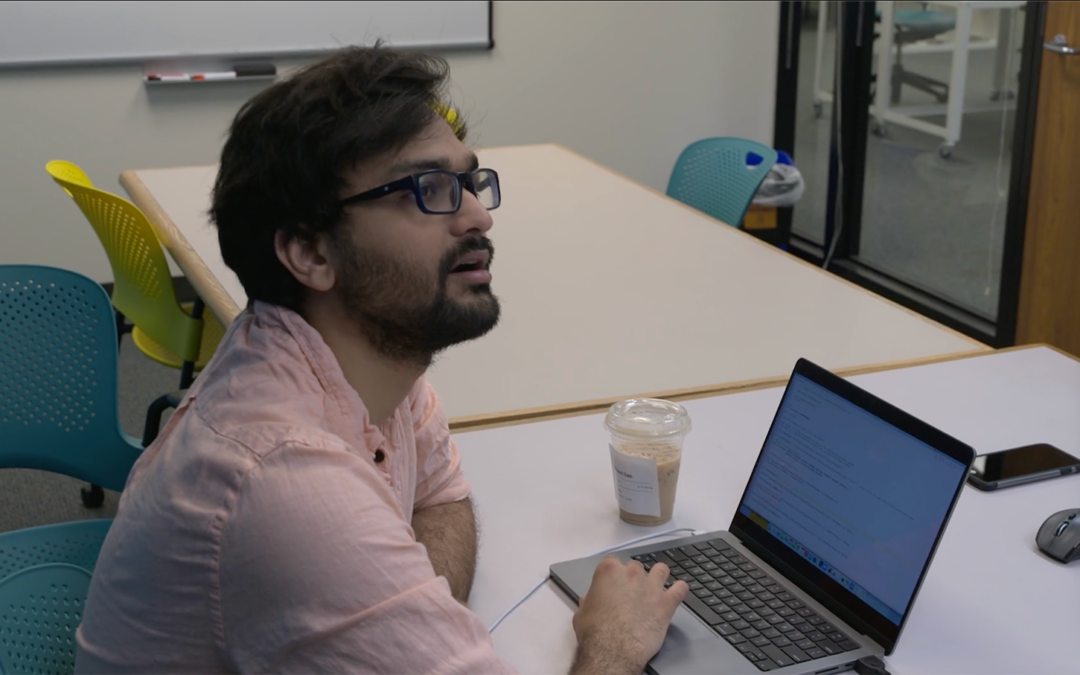Understanding how social identities and background impact salaries
Stone Center for Inequality Dynamics Director and Professor of Sociology Alexandra (Sasha) Killewald has dedicated her career to studying how social identities are related to time use, pay, and wealth.
“How does fatherhood change men’s wages? If a woman earns more money than her male partner, who does the housework?” she asks. “How has the gender pay gap changed over time?”
Using quantitative methods to study inequality in the United States, these are just some of the questions Sasha answers in her work.
Sasha honed her passion for research topics like these while studying at the University of Michigan.
Turning to Sociology to Combine Passion for Math and Gender Equality
When Sasha enrolled at U-M as an undergraduate student, she wasn’t sure what she would study. “I liked math, and when I came to college, I thought I was interested in doing that, but I didn’t really know what I wanted to do. As I took classes in economics, I realized I liked math as a way to understand the social world. I also really liked reading and the opportunity to read literature, so I took courses in French.”
It wasn’t long before she began to volunteer at the Sexual Assault and Awareness Center at U-M and then to lead the peer education program. The experience allowed Sasha to learn more about feminism, sexual violence, and systems of oppression. “Understanding how gender shapes people’s lives was really interesting to me, and I didn’t know at the time that sociology was a way to put that interest together with my interest in math.”
After completing her Bachelor of Science in mathematics, economics, and French at U-M, she worked as a Research Assistant for the Panel Study of Income Dynamics(PSID) at the Institute for Social Research. At the same time, she sat in on Professor of Sociology and Population Studies Center Director Sarah Burgard’s course on social stratification. She wondered, “is sociology something I might do?”
She decided to pursue the connection as she remained a Michigan Wolverine for graduate school, completing a MA in Sociology and Statistics en route to receiving her PhD in Public Policy and Sociology in 2011.
“I thought I would do some quantitative stuff, and flailed around a little bit. It was in the process of reading for general exams that I came across an article that claimed that women had to do extra housework when they out-earned their husbands compared to women who had earnings equal to their husbands.”
It inspired her and fellow graduate student Margaret Gough Courtney to further explore the topic. “We didn’t find evidence that women who out-earn their husbands do extra housework. Instead, we found that women’s housework time tends to fall as their earnings rise – but only up to a point. ”
The gendered story, they found, was that “when women earn more money – men don’t do any extra housework.”
In other words, Sasha explained, “Men’s housework time is not responsive to what’s going on for their female partners. When women have blocked options – when they can’t transfer housework to their male partners – what are your choices? You can pay someone else to do the work, get someone else in your household to do it, do it yourself, or leave it undone.”
A lot of research that focuses on this topic has implicitly assumed “that there is a fixed amount of housework” to be completed. “But, a big decision people make is, ‘how much housework is going to get done in total?’ Households are very different in that respect.”
The Impact of Parenthood on Wages, Time Use, and Jobs
A lot of literature in sociology has showed that women lost wages when they had babies – whether it was from taking time off, taking lower paying jobs, or working part-time in order to have more flexibility in their lives.
But how does fatherhood impact men’s wages? Sasha found that dads who are married, biological parents living with their kids – men who experience the most socially normative form of fatherhood – get a small increase in wages, “but nobody else does,” she explained.
Expanding this line of research, Sasha studied how couples’ wages, jobs, and time in paid and unpaid work changes after the birth of a first child.
A core finding of this research is that motherhood has, on average, much larger effects on women’s work lives than men’s. Women also vary substantially in how they shift time in paid and unpaid work after becoming moms. Most dads, by contrast, continue working full time. What’s more, it doesn’t appear that men’s greater contributions to housework reduce their wives’ housework burden or reduce their wives’ motherhood penalty. Once again, Sasha’s findings suggest that transferring housework from wives to husbands is a blocked option: “Moms have some autonomy in how they balance paid and unpaid work – but having their husband do more housework is generally not on the table,” she said.
Sasha argues that the fact that moms’ housework time doesn’t tend to fall when their husbands do more housework should make us question how we can reduce the wage penalty associated with motherhood. She noted that much of the language we use to talk about household labor and gender pay equality centers around getting men “to do more.” While still true, “it has to be about doing more in a way that specifically reduces the burden of women’s time in housework,” she said.

Why Does Wealth Inequality Persist Across Generations?
In another area of research, Sasha’s work has focused on wealth inequality,including the racial wealth gap and how wealth inequality persists across generations.
Most children tend to have similar wealth positions as their parents, and racial disparities in social origins contribute significantly to the racial wealth gap. In a paper co-authored with founding CID Director Fabian Pfeffer, Sasha found that black children have less wealthy parents and are far more likely to be downwardly mobile in household wealth on average than white children.
In another project, Sasha explores patterns of wealth accumulation for White, Black, and Latino young adults. Her results reveal that almost half of the disparities in wealth accumulation can be explained by racial and ethnic differences in class background, whereas the rest can be explained by factors such as education, income, and homeownership.
“How wealth accumulates through adulthood and young adulthood varies a lot depending on class background,” Sasha said. “There is a legacy of inequality through differences of race and ethnicity. There is a danger in thinking that the past doesn’t matter, and there’s also a danger in thinking that this is all in the past. Half the gap comes from the past, and half the gap is created fresh in each generation..
How Has the Gender Pay Gap Changed Over Time?
Now, she is starting to turn to the gender pay gap and how it has changed over time. The gender pay gap has narrowed since 1980 in part because “women exploded in college attainment,” Sasha explained. While the importance of changes in women’s education and work experience for narrowing the pay gap has been well studied, Sasha argues that changing family life may also play a role. “Fertility has changed a lot in this time, too. It’s not an accident that women are working more now than they used to. Women are having children later, and having fewer children.”
What Comes Next?
Now, Sasha is focusing on studying family and wealth together. “Fabian and I are working on a paper about how the wealth you end up with is related to your marital history, and how that differs by gender,” she said. In a future project, she hopes to more directly explore how wealth changes after a marital dissolution: When a marriage ends, who gets to keep the wealth?
Learn more about Sasha and her work:
- Wealth and Divorce. Demography, February 2023
- LSA Sociology Page
- Connect with Sasha on X

